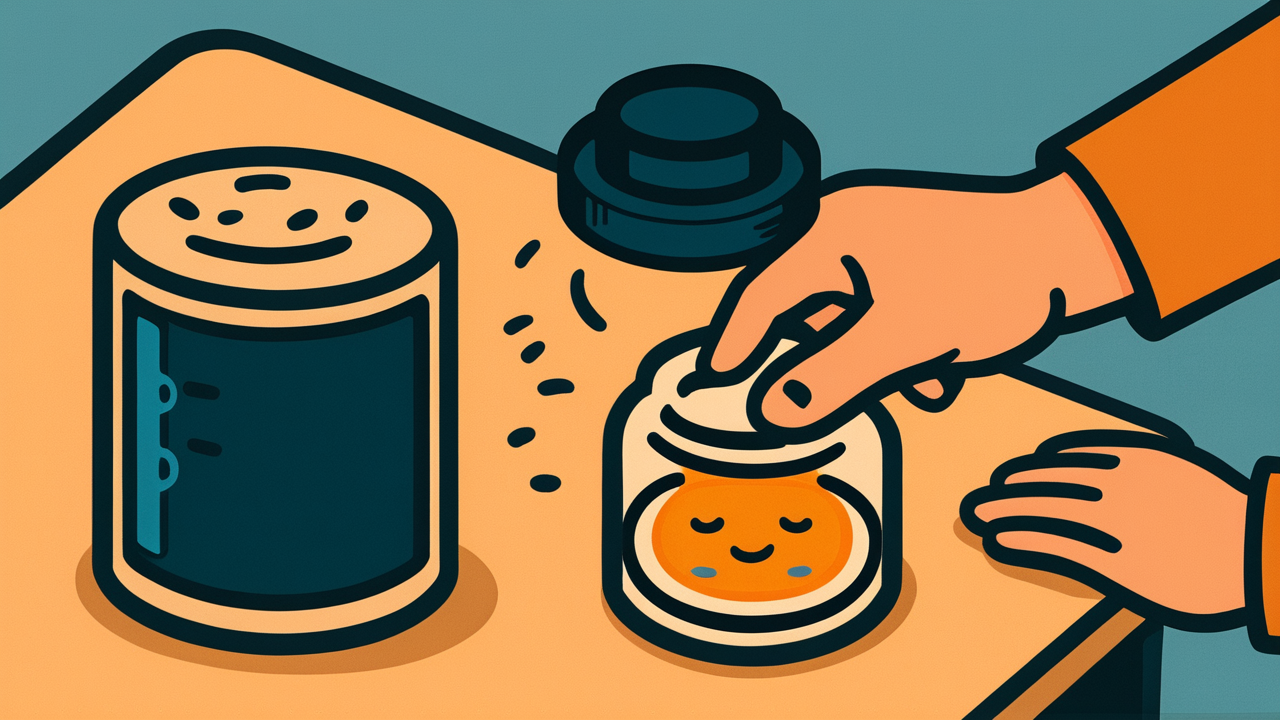How to Read “臭い物に蓋をする”
Kusai mono ni futa wo suru
Meaning of “臭い物に蓋をする”
“Put lid on smelly thing” means to temporarily hide or make invisible inconvenient facts or problems without fundamentally solving them.
This proverb critically expresses the act of trying to cover up problems with superficial symptomatic treatment. Just as putting a lid on smelly things doesn’t make the source of the odor disappear, hiding problems without facing their essence doesn’t lead to fundamental solutions. It is used in situations such as pointing out cover-ups of scandals within organizations, concealment of personal failures, or makeshift responses to social problems. The reason for using this expression is to warn that temporary measures not only fail to solve problems but may lead to more serious situations over time. Even today, it is often used when criticizing corporate fraud cover-ups or the handling of political scandals.
Origin and Etymology
The origin of “Put lid on smelly thing” comes from the literal everyday act of putting a lid on malodorous items to hide the smell. Since ancient times, Japanese households had the custom of covering strong-smelling items like rotten food or excrement with lids or covers to temporarily block the odor as a stopgap measure.
This proverb appears in literature from the Edo period, and considering the living conditions of that time, dealing with smelly things was a daily problem since there were no technologies like airtight containers or refrigerated storage that we have today. Particularly for food preservation in summer and toilet management, covering with a lid was the only way to temporarily suppress odors.
Eventually, this physical act came to be used metaphorically, employed to mean temporarily hiding inconvenient facts or problems. Among Edo period merchants and craftsmen, this expression was reportedly used when hiding inconvenient business facts. From the Meiji period onward, it was also applied to political and social issues and continues to be widely used today.
Usage Examples
- Trying to handle the company’s scandal through internal processing without making it public is like Put lid on smelly thing
- Continuing to hide a child’s poor grades from relatives is just Put lid on smelly thing and won’t lead to a fundamental solution
Modern Interpretation
In modern society, the act of “Put lid on smelly thing” has become a more complex and serious problem than ever before. In the age of social media and 24-hour news, while concealing information has become more difficult than before, new forms of “lids” such as information manipulation and impression management have emerged.
In corporations, as crisis management when scandals are exposed, they sometimes temporarily restrict information or make announcements that divert attention. However, in today’s information society, there is a high risk that hidden information will spread through social media and the internet, often resulting in greater loss of trust.
In the political world, we can see techniques of trying to cover up inconvenient policies or misgovernment with other topics, but criticism of such methods has become harsher due to voters’ improved information literacy.
On the other hand, at the individual level, new forms of “putting lids on” unique to the digital age have emerged, such as self-presentation on social media and deleting inconvenient past posts. However, digital information is difficult to completely erase, and we can say that we have entered an era where transparency and honesty are increasingly demanded.
When AI Hears This
The traditional “covering up something that smells” was a conscious human act of hiding inconvenient truths. However, in modern times, we’re witnessing a phenomenon where AI automatically puts on the “cover” without us even realizing it.
For example, algorithms on TikTok and Instagram learn from the posts you “like” and your viewing time, then display only similar content. People uninterested in politics see no political topics whatsoever, while those who love fashion stop receiving important news outside of fashion.
The frightening aspect of this “automatic covering by algorithms” is that we don’t realize we’re being covered up. When humans consciously avoid something, we can recognize “I’m avoiding this because I don’t want to see it.” But when AI makes decisions on its own and blocks information, we end up living without even knowing that information exists.
Research shows that Facebook’s news feed reduces the display rate of articles that differ from users’ political positions by up to 8%. In other words, even though we think we’re seeing a wide range of information, we’re actually trapped in a “bubble” of biased information.
Modern “covering up something that smells” is a more sophisticated and dangerous phenomenon that progresses quietly beyond our will.
Lessons for Today
What this proverb teaches modern people is the importance of having the courage to face problems. We encounter various difficulties, large and small, on a daily basis, but we tend to try to gain a sense of security by looking away from them or temporarily hiding them.
However, true solutions begin with facing the root of problems. Whether it’s workplace relationship troubles, family issues, or health concerns, dealing with any problem early and appropriately can lead to better results.
In modern society, information transparency is becoming increasingly important. Both in organizations and for individuals, honesty and integrity form the foundation for building long-term trust relationships. Rather than fearing temporary difficulties and hiding problems, an attitude of openly sharing challenges and solving them with the cooperation of others is required.
This proverb sends us the message to “have the courage to face reality.” Problems are not meant to be hidden, but to be solved.



Comments